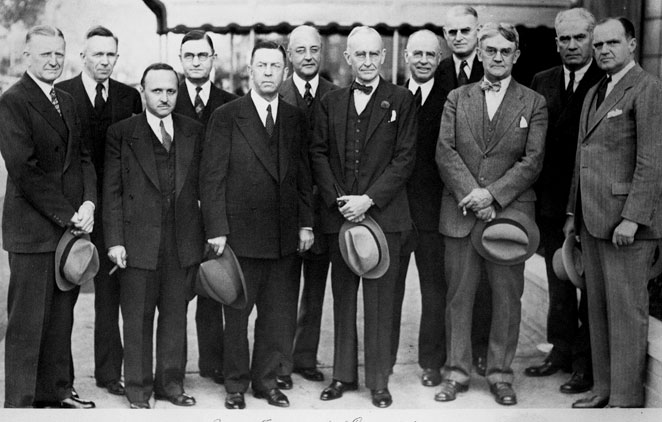Loading
About > About Us
About Us
Overview
- The American Board of Surgery is an independent, nonprofit organization founded in 1937 to provide board certification to individuals who have met a defined standard of education, training and knowledge in the field of surgery. Surgeons certified by the ABS, known as diplomates, have completed at least 5 years of residency training following medical school, met all ABS training requirements, and successfully completed the ABS examination process.
- Once certified, ABS diplomates must complete continuing education and assessment activities, in a process currently known as Continuous Certification.
- Board certification by the ABS is a voluntary process that demonstrates a surgeon's commitment to professionalism, lifelong learning, and quality patient care. The ABS offers board certification in surgery (general surgery), vascular surgery, pediatric surgery, surgical critical care, complex general surgical oncology, and hand surgery. For more on this process, see About ABS Certification.
Our Mission
The American Board of Surgery (ABS) serves patients, society, and the specialty of surgery by providing leadership in surgical education and practice. The ABS ensures excellence through:
- Building a diverse, equitable, and inclusive culture.
- Rigorous evaluation and assessment.
- Promoting the highest standards for professionalism, lifelong learning, and continuous certification of surgeons in practice.
Our Purpose
- The American Board of Surgery is a private, nonprofit, autonomous organization formed for the following purposes:
- To conduct examinations of acceptable candidates who seek certification or continuous certification by the board.
- To issue certificates to all candidates meeting the board's requirements and satisfactorily completing its prescribed examinations.
- To improve and broaden the opportunities for the graduate education and training of surgeons.
- The ABS considers certification to be voluntary and limits its responsibilities to fulfilling the purposes stated above. Its principal objective is to pass judgment on the education, training and knowledge of broadly qualified and responsible surgeons and not to designate who shall or shall not perform surgical operations. It is not concerned with the attainment of special recognition in the practice of surgery. Furthermore, it is neither the intent nor the purpose of the board to define the requirements for membership on the staff of hospitals or institutions involved in the practice or teaching of surgery.
Our History
- The ABS was organized on January 9, 1937, and formally chartered on July 19, 1937. Its formation was the result of a committee created a year earlier by the American Surgical Association, with representatives from the American Medical Association, American College of Surgeons, and the Western, Southern, New England and Pacific Coast Surgical Associations.
- The committee sought to establish a certification process and national certifying body for surgeons practicing in the U.S. The leaders of these organizations felt surgery had matured into a full-time specialty and recognized the need to differentiate formally trained surgeons from doctors in general practice.

Original ABS directors, 1939
- The committee decided that the ABS should be formed of members from the represented organizations and, once organized, it would establish a comprehensive certification process. These findings and recommendations were approved by the cooperating societies, leading to the board's formation in 1937. This was done to protect the public and improve the specialty.
- The ABS was created in accordance with the Advisory Board of Medical Specialties, the accepted governing body for determining certain specialty fields of medicine as suitable for certification. In 1970 the Advisory Board of Medical Specialties became known as the American Board of Medical Specialties.
Quick Facts
- The ABS is a completely independent, nonprofit entity. It accepts no external funding.
- The ABS was founded to improve the specialty of surgery and protect the public.
- Approximately 31,000 surgeons are currently board certified by the ABS.
- The ABS office has been in Philadelphia since the board's founding in 1937.
- ABS certificate No. 1 is held by Dr. Evarts A. Graham, a leading advocate for the creation of The Joint Commission.
- ABS certificate No. 2 is held by Dr. Allen O. Whipple, for whom the Whipple procedure is known.
- Two of the first surgeons to become ABS diplomates were Drs. William J. and Charles H. Mayo, founders of the Mayo Clinic.
- Dr. Edwin J. Wylie, the main force behind the establishment of the certificate in vascular surgery, holds vascular surgery certificate No. 1.
- Dr. Charles "Jim" Carrico, who treated President John F. Kennedy after he was shot in Dallas, holds the No. 1 certificate in surgical critical care.
- A former U.S. surgeon general, Dr. C. Everett Koop, was one of the chief proponents for the creation of a certificate in pediatric surgery.
See also our Diplomate and Exam Pass Rates.
Our Seal
- The seal of the ABS was developed as part of its formation in 1937 and has remained generally unchanged since that time. It is a registered trademark and may not be used or reproduced without permission. See Representation of Certification Status for more details.
Booklet of Information
- The Booklet of Information - Surgery (pdf) is published annually by the American Board of Surgery to outline the requirements for certification in general surgery and provide information regarding the ABS' purpose, history and organization.
American Board of Medical Specialties
- The ABS is one of 24 medical specialty boards that make up the American Board of Medical Specialties (ABMS). Through ABMS, the boards work together to establish common standards for physicians to achieve and maintain board certification. The boards were founded by their respective specialties to protect the public by assessing and certifying doctors who meet specific educational, training and professional requirements. The ABMS is an independent, nonprofit organization.
- For more information, visit www.abms.org or the ABMS' patient site, www.certificationmatters.org. The ABMS also maintains an evidence library supporting the value and importance of board certification.
C500-3961850854-690A
